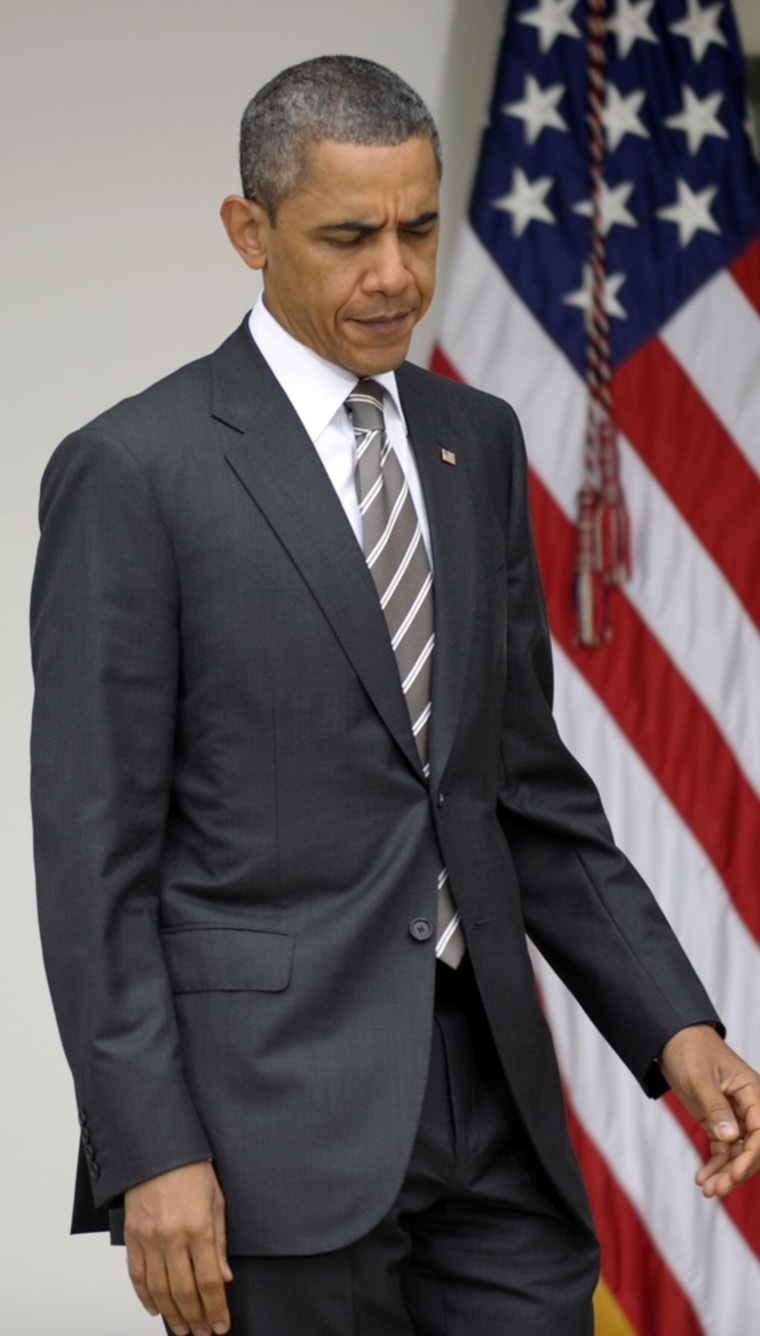Before Friday, there was some hope that the June jobs report would reassure jittery Americans that the nation’s economic recovery was finally getting on track.
That hope was dashed by the worst employment report in months, which instead stoked further fears that the job market barely has a pulse.
The U.S. economy added just 18,000 jobs in June, while more than 14 million Americans were jobless. The unemployment rate edged up slightly, to 9.2 percent.
“It was horrible. There’s no word to sugarcoat that,” said Paul Ashworth, chief U.S. economist for Capital Economics.
"Ugly," was how economist Joel Naroff with Naroff Economic Advisors described the data.
Although the recession officially ended in June 2009, job growth has been slower than any other post-recession period since the Great Depression, even as the economy has grown — albeit slowly — and corporate profits have picked up.
The June report showed little job growth in the private sector, while the government sector is shedding jobs, a net 39,000 in June alone.
“The June employment data were stunningly weak,” Naroff wrote in a research report Friday morning.
It’s a depressing turnaround from earlier this year, when several months of more robust job growth had raised hopes that the job market was getting on track after years of struggle. But a weak jobs report last month left many worried the economy was stalling yet again. Friday’s lousy report added to those fears.
Speaking in Washingon, President Barack Obama said that while a debate in the nation’s capital is raging over the debt limit, most Americans are more worried about economic issues that hit closer to home, such as the high unemployment rate.
“Today’s job report confirms what most Americans already know: We still have a long way to go and a lot of work to do to give people the security and opportunity that they deserve,” Obama said.
Obama noted that although about two million private-sector jobs have been added in the past 16 months, a staggering 8 million jobs were lost in the recession.
“That means that we still have a big hole to fill,” he said.
The high unemployment rate itself only tells part of the story of just how hard it is out there. Ashworth noted that the employment-population ratio stood at just 58.2 percent in June and has been trending down in recent months.
When the economy was healthier, the ratio stood at around 63 percent. That meant a much bigger percentage of the working-age population was working.
“We’ve recovered some of the lost jobs, but really if you look at that employment-population ratio — which is the ultimate yardstick of the slack labor market — there's just no improvement at all. It’s devastating,” Ashworth said.
There’s other evidence that millions of people are growing discouraged by their prospects. A much broader definition of unemployment edged up to 16.2 percent in June, the highest level since the end of last year.
That figure includes people who are so dispirited they’ve stopped looking for work, people who want a job but hadn’t searched for one in the past four weeks and those who are working part-time but would like to be working full-time.
“That suggests that it wasn’t (that) people weren’t coming into the labor force, but people were giving up for a while on the labor force and leaving,” said Mike Montgomery, U.S. economist with IHS Global Insight.
Montgomery said some Americans may have jumped back into the labor market earlier this year, when job growth appeared to be gaining some momentum. But they may have recently dropped back out when there didn’t seem to be a job out there for them.
There is reason to hope that things will get better in the second half of this year, Montgomery said. Gas prices have fallen again in recent weeks. That could give people a little extra money to spend on other things each week, and in turn could spur some companies to feel comfortable hiring new workers.
Plenty of uncertainty remains, though.
“We’ve got a very patchy recovery,” Ashworth said. “Just when you think it’s going to suddenly pick up and get back to a more normal recovery with a very rapid rate of growth … things just sort of fall apart.”
